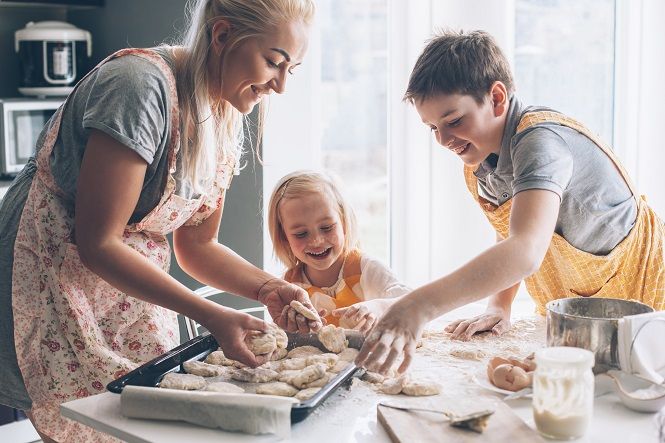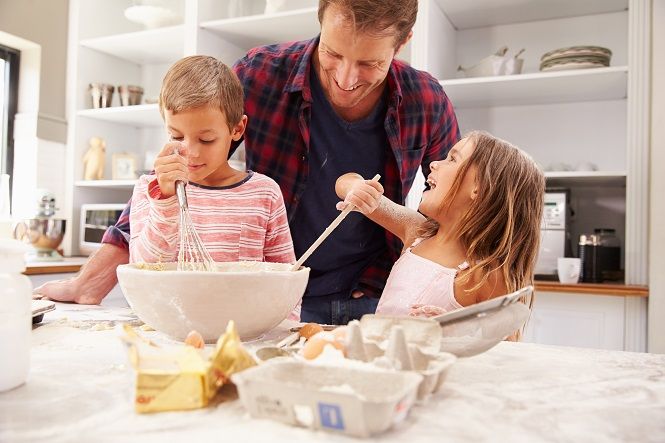The Benefits of Involving Your Kids in Cooking
Children learn through their senses-listening, seeing, touching, smelling, and tasting-which makes the kitchen a wonderful place for learning. There are many benefits-for both you and your children-to getting kids involved in cooking. Learning the basics of cooking gives them practical skills they can use for the rest of their lives.

Healthy Habits
Involving kids in the process of cooking is a great way to build habits that contribute to good health. Kids who learn how to choose good, fresh produce are more likely to at least try it (and maybe even learn to prefer it). Engaging them in choosing fruits, vegetables, and other items, helps make them more open-minded when it comes to food, which can transfer into other areas of life.
Preparing meals together gives you a chance to talk about good health, healthy ingredients, such as the types of vitamins and minerals you get from different foods, and healthy habits, such as the importance of drinking water. Developing a positive attitude toward all different types of fresh food is important because good, healthy foods are the foundation of good nutrition.
Strengthen Relationships
Cooking brings cooks of all ages together. The time spent preparing and cooking meals provides opportunities to talk and share. Communication is an important key to raising a well-adjusted, healthy child and to establishing relationships. Teaching kids to talk and share in a relaxed atmosphere in the kitchen, interact, carry on a dialogue, and have meaningful conversations can transfer to an ability and willingness to share and have deeper conversations throughout life.
Build Self-Esteem
Cooking provides an opportunity for you to give instant feedback and lots of positive reinforcement. Learning new skills in the kitchen, such as how to make homemade soup, how to bake, and how to create a delicious main course and side dishes helps children learn and grow in self-knowledge and confidence that contributes to the development of healthy self-esteem.
Science and Art in Real Life
Cooking is a blend of art and science. The science part of cooking includes collecting ingredients and identifying which ones work well to make your dish. As with a science experiment, too much or not enough of an ingredient can cause a recipe or "experiment" to fail. It's like a chemical equation in that you apply heat to your mix of ingredients and get a chemical reaction.
On the other hand, cooking is also an art. You want the final dish, its colors, tastes, and textures, to appeal to the senses.
Math Skills
Adjusting recipes offers a great way to teach math. Doubling a recipe requires addition or multiplication. Cutting it in half requires division and fractions. You may even be able to sneak it in without them realizing they're practicing math skills.
Reading Comprehension
Reading and following a recipe involves reading, understanding, and following step-by-step directions. Comprehending what's written, following a sequence, and using the right technique, such as blending, or folding in an ingredient, is important when cooking with a recipe and good practice in reading comprehension.
Motor Skills
Cooking with young kids helps them to develop fine motor skills and eye-hand coordination.

Fun!
Most importantly, having fun with your children in the kitchen builds positive memories and bonding through shared experiences.
While you'll undoubtedly have a few more spills and messes to clean up and a few more broken dishes than you might have if you did everything yourself, with so many points on the positive side of teaching kids to cook, why wouldn't you start now? After all, one day you'll be able to enjoy the benefits.
